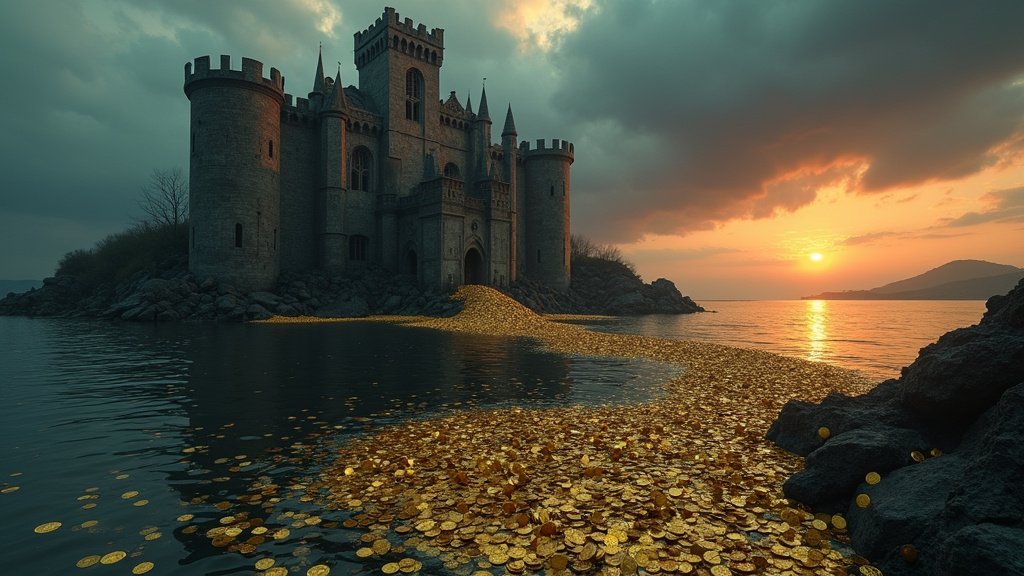The recent decision to cancel “The Wheel of Time” series has sent ripples through Hollywood, signaling a significant setback for the industry’s ambitious pursuit of adapting epic fantasy books into streaming behemoths. In the wake of “Game of Thrones,” a gold rush ensued, with studios pouring unprecedented resources into finding the next global phenomenon. Now, that investment, potentially amounting to billions, looks increasingly like it might lead to profound regret as the fantasy genre’s once-bright future on screens begins to dim. This development marks a pivotal moment, raising questions about the sustainability of massive fantasy productions and the very trajectory of premium tv content.
The Post-‘Game of Thrones’ Gold Rush and Rising Stakes
For years following the unprecedented success of HBO’s “Game of Thrones,” the entertainment industry became fixated on replicating its cultural impact. Studios and streaming platforms alike opened their coffers, envisioning a future where every major fantasy literary saga could find its home on screens, captivating millions. This era saw an explosion of development deals for sprawling narratives, from intricate magic systems to vast, fictional continents. The allure was undeniable: a ready-made fanbase, rich world-building, and the promise of multi-season arcs that could anchor subscriber loyalty. The collective billions spent across these ventures—on acquisition rights, lavish production budgets, and star power—reflected an industry-wide belief that epic fantasy was the next evergreen content pillar. Expectations were sky-high, and the drive to secure the next big hit became a trending priority for every major player in the content arms race.
Navigating a Saturated Market and Production Hurdles
However, the path from page to screen for these ambitious fantasy projects has proven far more treacherous than anticipated. Beyond the sheer financial commitment, the challenges of getting such complex titles off the ground are formidable. Adapting intricate lore, casting diverse characters, and building convincing visual effects for an entire fantastical world requires immense logistical and creative effort. Moreover, the market rapidly became saturated. Audiences, once starved for high-quality fantasy, were suddenly presented with a multitude of options, all vying for their attention and subscription dollars. This glut of content, while initially exciting, began to dilute individual impacts, making it incredibly difficult for any single series to stand out and truly capture the public’s imagination in the way “Game of Thrones” did. The initial optimism that fueled this wave of movies and shows started to wane as the inherent difficulties became apparent.
“The Wheel of Time’s” Cancellation: A Bellwether for the Genre
The recent news regarding “The Wheel of Time” serves as a stark reminder of these underlying fragilities. Its cancellation, or at least the significant discussion around it as a significant setback, is not merely about one show’s fate; it’s a bellwether for the entire genre’s current standing. Despite considerable investment and a dedicated fanbase from Robert Jordan’s beloved books, the series seemingly failed to achieve the breakout cultural resonance or sustained viewership metrics that justify its colossal budget in the eyes of its streaming platform. This outcome underscores the increasing scrutiny on return on investment in a rapidly evolving media landscape where content is plentiful but genuine hits are rare. The inability of a high-profile adaptation like “The Wheel of Time” to thrive reinforces the growing skepticism about the viability of continued, open-ended investment in such large-scale fantasy productions.
A Grim Outlook for Future Fantasy Endeavors
The ramifications of this trend are likely to be far-reaching. The industry’s potential regret over the billions already spent could translate into a dramatic shift in strategy. It is highly probable that many fantasy projects currently in development—series that were once seen as sure bets or long-term investments—could now be shelved indefinitely. Studios are becoming more risk-averse, and the economic realities of a competitive streaming environment demand clearer paths to profitability and audience engagement. Upcoming years, therefore, may not be supportive for new epic fantasy adaptations. The window of opportunity that “Game of Thrones” opened appears to be closing, making it increasingly challenging for even well-regarded literary properties to secure the green light and necessary funding. This isn’t just a blip; it could signify a long-term cool-down for the genre in its current format.
The Search for the Next Cultural Phenomenon
For the current trend to reverse, the industry consensus points to a singular, critical requirement: the emergence of a new cultural phenomenon. Something entirely fresh, incredibly compelling, and widely appealing would need to break through the noise, redefining what an epic fantasy hit looks like and proving that the genre can still captivate a global audience on an unprecedented scale. Without such a groundbreaking title, the appetite for costly, multi-season fantasy sagas will likely remain suppressed. The news for fans hoping for endless adaptations of their favorite movies and literary worlds is sobering, as studios prioritize safer, less expensive bets in a market that has demonstrated a clear preference for distinct, standout successes over a volume of merely “good enough” content. The hope is that innovation, rather than sheer scale, will eventually rekindle the magic.
Conclusion:
The cancellation of “The Wheel of Time” is more than just a piece of news for fans of a particular show; it represents a sobering moment for Hollywood’s grand post-“Game of Thrones” fantasy experiment. The billions poured into these ambitious adaptations were based on a dream of endless epic storytelling, but the realities of market saturation, production challenges, and audience engagement have proven formidable. As the industry grapples with the potential regret over its lavish investments, the immediate future for new epic fantasy tv adaptations appears constrained, with many projects facing indefinite shelving. Only an unforeseen cultural phenomenon, capable of truly reigniting widespread fervor for the genre, seems poised to shift this trending narrative away from one of caution and cost-cutting back towards boundless imagination.




